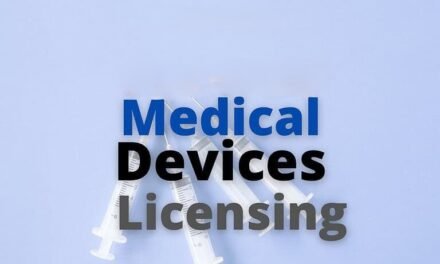
What role do distributors and retailers play in the Indian medical device market?

Distributors and retailers are critical components of the supply chain in the Indian medical device market, playing a pivotal role in ensuring that medical devices reach healthcare providers and end users efficiently and effectively. Their responsibilities span distribution, marketing, customer education, and support. Here’s a detailed look at their roles:
1. Facilitating Distribution:
- Bridging Manufacturers and Healthcare Providers:
- Distributors act as intermediaries between manufacturers and healthcare institutions, ensuring that products reach hospitals, clinics, and diagnostic centers.
- Regional Reach:
- Distributors often have a strong presence in specific regions, enabling manufacturers to penetrate local markets effectively, including Tier 2 and Tier 3 cities and rural areas.
- Last-Mile Delivery:
- Retailers ensure that medical devices, especially consumables and home healthcare products, are available to end users at pharmacies, stores, and online platforms.
2. Inventory Management:
- Stock Availability:
- Distributors maintain inventories to meet the immediate needs of healthcare facilities, avoiding delays in patient care.
- Demand Forecasting:
- They help manufacturers plan production by providing insights into market demand trends.
3. Marketing and Promotion:
- Product Awareness:
- Distributors and retailers educate healthcare professionals about new medical devices and their applications.
- Demonstrations and Training:
- Distributors organize workshops and training sessions for healthcare staff, particularly for complex or high-tech devices like imaging equipment or surgical tools.
4. Customizing Offerings:
- Local Adaptations:
- Distributors provide feedback to manufacturers on local market preferences, enabling customization of products to suit regional needs.
- Bundling and Discounts:
- They often bundle products or offer discounts to hospitals and clinics to encourage bulk purchases.
5. Regulatory Compliance:
- Ensuring Legal Distribution:
- Distributors handle regulatory aspects like product registration, import permits (if applicable), and compliance with government regulations.
- Quality Assurance:
- They ensure that products meet necessary standards and maintain proper storage conditions, especially for temperature-sensitive devices.
6. Enabling Accessibility:
- Supply Chain Extension:
- Distributors expand the supply chain to underserved areas, ensuring that devices are available even in remote locations.
- Pharmacy Networks:
- Retailers make smaller medical devices and consumables accessible to individual consumers through retail pharmacies.
7. Financing and Payment Solutions:
- Credit Terms:
- Distributors often provide credit facilities to hospitals and clinics, easing their financial burden.
- Risk Sharing:
- They may assume risks related to unsold inventory or payment delays from customers.
8. After-Sales Support:
- Maintenance and Repair Services:
- Distributors provide technical support, maintenance, and repair services for high-tech devices like ventilators, diagnostic tools, and imaging systems.
- Training on Usage:
- Retailers and distributors educate users, especially for home healthcare devices like glucose monitors or nebulizers.
9. E-Commerce Integration:
- Online Sales:
- Retailers are increasingly leveraging e-commerce platforms to sell medical devices directly to consumers, expanding reach and convenience.
- B2B Platforms:
- Distributors use platforms like Medikabazaar to connect with hospitals and clinics for bulk purchases.
10. Building Trust and Relationships:
- Trusted Advisors:
- Distributors act as trusted advisors to healthcare providers, recommending the best solutions based on their expertise and understanding of the market.
- Customer Relationships:
- Retailers build strong relationships with consumers, ensuring brand loyalty and repeat purchases.
Challenges Faced by Distributors and Retailers:
- Regulatory Complexity:
- Navigating India’s evolving regulatory framework for medical devices can be challenging.
- Inventory Management:
- Managing demand fluctuations and ensuring timely restocking is critical, especially for critical care devices.
- Price Sensitivity:
- The Indian market is highly price-sensitive, requiring distributors and retailers to balance affordability with quality.
Distributors and retailers are indispensable in the Indian medical device market, ensuring the seamless flow of products from manufacturers to end users. Their roles in distribution, marketing, education, and support are critical for the growth and accessibility of medical devices across diverse regions and healthcare settings. With the growing adoption of e-commerce and digital tools, their importance is set to increase, helping bridge gaps in healthcare delivery across India.




























